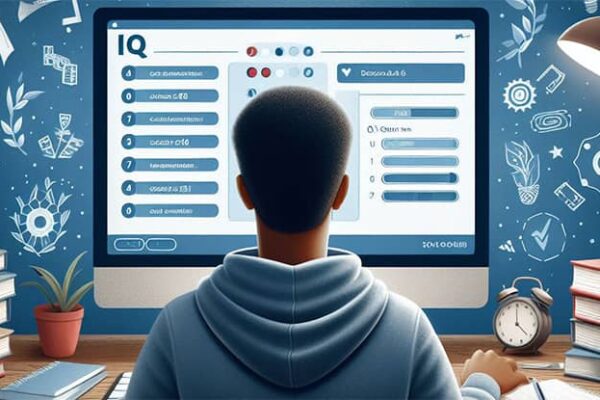In the modern world, we face numerous challenges every day that transform our lives faster than ever before. Technological progress, globalization, constant information pressure, and social competition create an environment where individuals must adapt to new realities to remain competitive and maintain inner balance.
Rapid societal changes demand not only flexible thinking but also the ability to foresee the consequences of actions, effectively allocate resources, and act with long-term perspectives in mind. In such conditions, strategic thinking becomes an indispensable tool that helps individuals not only overcome difficulties but also pave the way to success.
Strategic thinking is particularly crucial for adapting to modern realities, as it allows one to view problems through a global lens, evaluating situations not only in terms of immediate outcomes but also with a future-oriented perspective. This skill helps individuals understand the interconnectedness of events, predict their development, and make decisions that not only solve current problems but also open up new opportunities for self-realization.
Thanks to strategic thinking, individuals can set goals aligned with their values and aspirations, develop clear action plans, and achieve harmony between the desired and the real.
At the same time, this ability serves as an internal resource that supports psychological resilience. In a world where chaos and uncertainty have become routine, strategic thinking acts as a guide, helping individuals navigate the myriad of choices and move forward confidently.
Thus, this skill not only enhances the effectiveness of actions but also contributes to personal growth, allowing individuals to maintain balance between work, personal life, and self-improvement. Therefore, understanding strategic thinking and its development is of utmost importance for anyone striving to adapt successfully to the modern world and fully realize their potential.
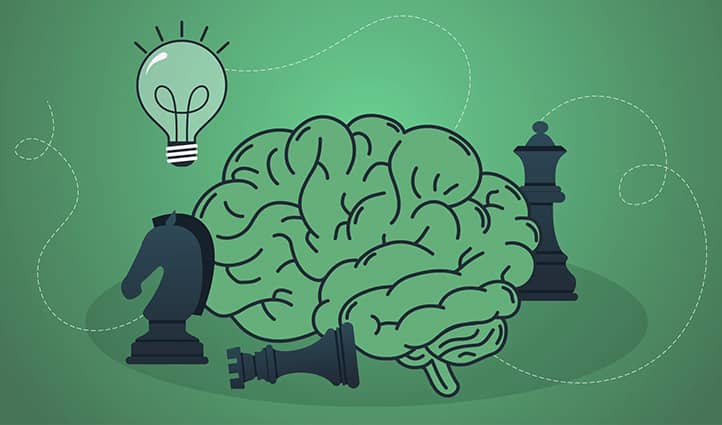
What Is Strategic Thinking?
Strategic thinking is a cognitive process aimed at long-term planning and decision-making, taking into account the complexity of systems, the context of events, and potential scenarios for the development of situations. The primary goal of this type of thinking is to create a holistic picture of the future, enabling focus on priorities and guiding actions to achieve optimal results.
In a world that constantly changes and demands quick decisions, strategic thinking becomes a key skill that not only allows adaptation to changes but also anticipates them. This form of thinking involves the ability to create long-term plans, considering a broad context and the potential consequences of actions. It is focused on achieving significant goals, requiring an understanding of the interconnectedness of individual events, the ability to manage resources, and the flexibility to adapt.
Differences From Other Types of Thinking
Strategic thinking is essential not only for leaders or managers but for anyone who seeks to effectively manage their life. Unlike routine analysis of a situation or responses to immediate challenges, this type of thinking is directed toward building a forward-looking vision and maintaining focus on what matters most, even in challenging circumstances.
To better understand the essence of strategic thinking, it’s important to explore how it differs from critical and tactical thinking, as well as what characteristics make it such a powerful tool.
- Critical thinking focuses on analyzing facts, logic, identifying biases, and evaluating the credibility of information. While it is an excellent tool for solving specific tasks, it does not provide a broad perspective.
- Tactical thinking, on the other hand, focuses on short-term actions and specific steps aimed at solving immediate problems. Although effective in certain situations, its limited scope often hinders consideration of long-term consequences.
Strategic thinking integrates elements of both approaches but goes beyond their boundaries, creating a systemic and far-reaching vision.
Key Characteristics of Strategic Thinking
One defining feature of strategic thinking is foresight. This ability enables individuals to shape a vision of the future, predict likely outcomes of actions, and anticipate how they will impact goals. Foresight requires imagination, analytical skills, and a willingness to consider various development scenarios. A person with strategic thinking not only addresses current problems but also calculates how present decisions will affect the future, avoiding impulsivity and concentrating on what matters most.
The second key feature is systematic thinking. It involves the ability to see the big picture of a situation and understand how its various aspects are interconnected. This means not only recognizing key factors but also evaluating their mutual influence. A systematic approach helps avoid fragmented perceptions of problems and find comprehensive solutions that account for all aspects. A person with this approach views challenges not as isolated difficulties but as part of a larger process that can be influenced and changed.
The third crucial component is adaptability, which ensures flexibility in decision-making. The modern world often places us in situations that cannot be predicted, making the ability to quickly adjust plans and approaches essential. Adaptability allows individuals to take new information into account, respond to changing circumstances, and remain effective even in uncertainty. For strategic thinking, this is particularly important, as it does not rely on rigid rules but requires openness to change and continuous learning.
Strategic thinking is a unique cognitive process that combines foresight, systematic thinking, and adaptability, making it an indispensable tool for decision-making and achieving goals in a complex and ever-changing world.

Strategic Thinking as a Psychological Resource
In today’s world, where stress and uncertainty have become integral parts of life, individuals need inner resources to maintain resilience, stay motivated, and achieve goals effectively. Strategic thinking serves as such a resource, supporting psychological balance while fostering personal development. By thinking strategically, a person can confidently navigate life’s challenges, keeping their main objectives in sight and staying on the path to success.
The psychological value of strategic thinking lies in its ability to structure chaotic reality, creating a sense of control over situations. It helps to develop action plans even in complex circumstances, reducing anxiety and instilling confidence in the future. Moreover, it sustains motivation by enabling a person to focus on long-term goals and perceive them as attainable, even if the path appears challenging.
An important aspect of strategic thinking is its connection to emotional intelligence. This interplay allows individuals not only to plan rationally but also to better understand their own emotions and those of others, making the decision-making process more balanced.
A Resource for Overcoming Stress and Uncertainty
Strategic thinking helps to overcome stress and uncertainty by enabling clear planning and forming realistic expectations. When faced with uncertain situations, the primary cause of stress is often a sense of helplessness and loss of control. A strategic approach focuses on analyzing available information, identifying potential risks, and creating several scenarios for possible outcomes. This not only provides a better understanding of the situation but also prepares individuals for potential challenges in advance.
Strategic thinking also promotes resilience by focusing on priorities and maintaining composure even in crisis situations. Instead of reacting impulsively, someone with well-developed strategic thinking evaluates the situation from a long-term perspective, reducing emotional tension. It acts as an internal compass, pointing toward what truly matters and helping to channel energy into actions that make a real difference.
A Tool for Sustaining Motivation and Achieving Goals
One of the greatest advantages of strategic thinking is its ability to sustain motivation, even when achieving goals seems difficult or distant. It helps to break down large tasks into smaller steps, allowing individuals to see gradual progress and experience satisfaction from intermediate results. This approach is especially valuable in long-term projects where immediate outcomes may not be apparent, but the strategic plan serves as a reminder of the ultimate goal, motivating continued progress.
Additionally, strategic thinking facilitates effective resource management, such as time, energy, or finances. A person with strategic thinking skills avoids burnout by knowing how to allocate their efforts wisely to achieve maximum results. This mindset helps maintain a positive outlook even under challenging conditions, as it focuses on overcoming obstacles rather than dwelling on them.
The Link Between Strategic Thinking and Emotional Intelligence
Strategic thinking is closely linked to emotional intelligence because understanding emotions enhances the ability to manage one’s actions and relationships with others. Someone who recognizes their emotions and their influence on decision-making can avoid impulsiveness and remain focused on strategic goals. Emotional intelligence also helps to consider the needs, motivations, and emotional states of others, increasing the effectiveness of collaboration and fostering trust.
For instance, in teamwork, strategic thinking combined with emotional intelligence helps to balance goal achievement with maintaining a positive atmosphere. A person with these skills can adapt communication to the needs of colleagues, reducing conflicts and enhancing overall team efficiency. This not only ensures successful task completion but also strengthens unity and mutual support.
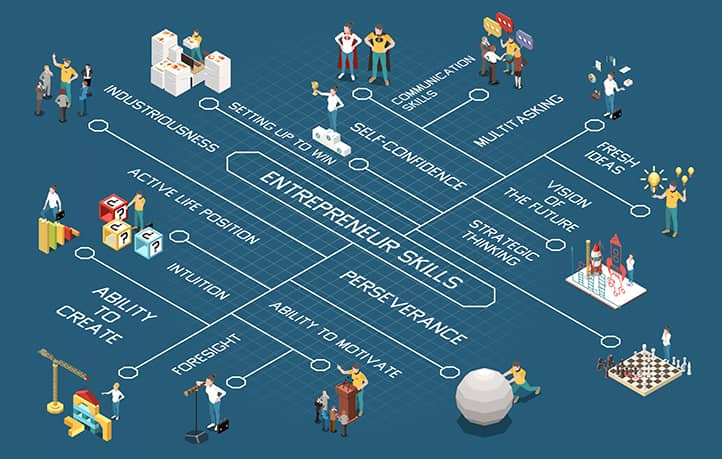
The Role of Strategic Thinking in the Life of a Modern Individual
Modern life presents numerous challenges that require not only quick decisions but also the ability to foresee consequences, adapt to changes, and act purposefully. In this context, strategic thinking becomes not merely a useful skill but a vital resource for effectively managing one’s life. It enables informed decision-making, career planning, and emotional resilience, ensuring a harmonious combination of personal and professional growth.
The role of strategic thinking extends far beyond traditional planning. It allows individuals to analyze situations not only in terms of immediate benefits but also with consideration of long-term consequences. This type of thinking fosters balanced decisions that account for both rational and emotional aspects, helping individuals achieve success while maintaining inner balance. The importance of strategic thinking is especially evident in three key areas: complex decision-making, professional self-realization, and personal development.
Complex Decision-Making
Making complex decisions is often one of the greatest challenges in modern life. Strategic thinking provides tools for analyzing situations, considering various factors, and evaluating potential outcomes. This approach helps individuals avoid impulsive actions that may lead to negative results and instead make well-founded decisions aligned with their long-term goals.
A key aspect of strategic thinking is the ability to view situations in context. For instance, rather than reacting to a single issue, an individual analyzes it as part of a larger process. This not only helps find effective solutions but also anticipates how these decisions will impact other areas of life. Equally important is the ability to navigate uncertainty: strategic thinking allows for the development of multiple scenarios, boosting confidence even in challenging circumstances.
Professional Self-Realization
Strategic thinking plays a pivotal role in career growth as it enables individuals to form a clear vision of their professional goals and the paths to achieve them. The ability to plan a long-term career strategy helps avoid haphazard decisions that might hinder progress and focus instead on steps that lead to success.
This skill is particularly vital for leaders and entrepreneurs. It empowers them to make decisions that balance the company’s interests with employees’ needs. For example, successful business strategies often rely on market analysis, consideration of competitors, and long-term planning for product or service development. A vivid example is companies that invest in new technologies and create innovations, staying ahead of competitors.
Personal Development and Emotional Resilience
Strategic thinking is also a powerful tool for personal development and maintaining psychological balance. It helps individuals remain calm and effective even in stressful situations, as it allows them to view difficulties as temporary challenges that can be overcome. By structuring their goals and assessing priorities, individuals can avoid burnout and focus their efforts on what matters most.
Resource management is another crucial aspect of strategic thinking. The ability to allocate time, energy, and attention is key to achieving goals effectively. For instance, a person with strategic thinking skills knows how to prioritize tasks to prevent emotional burnout and remain productive over the long term. They plan their actions to achieve maximum results with minimal resource expenditure, making their life more harmonious.
In conclusion, strategic thinking is an indispensable tool in the life of a modern individual, helping to make complex decisions, realize professional ambitions, and maintain emotional resilience. It promotes a harmonious blend of personal and professional development, making life more intentional and effective.
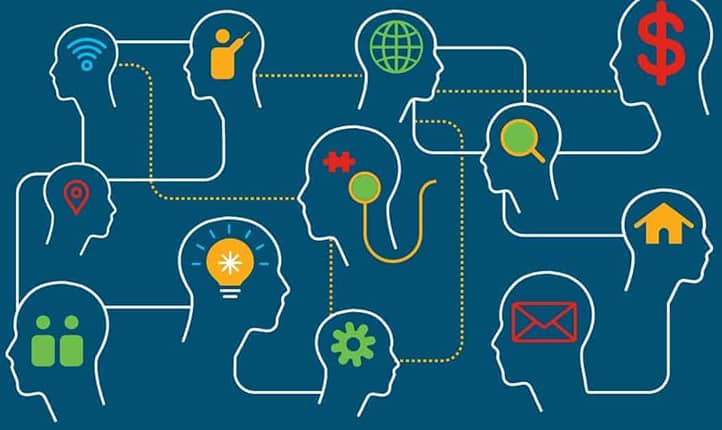
Methods and Tools for Developing Strategic Thinking
Strategic thinking is a skill that can and should be developed, as it allows individuals to effectively adapt to complex life circumstances, make well-informed decisions, and achieve long-term goals. Developing this skill requires consistent effort, including analyzing past experiences, practicing thought exercises, and utilizing psychological techniques.
Methods for enhancing strategic thinking rely on a combination of reflection, practical exercises, and planning. Each of these approaches enables individuals to cultivate key aspects of thinking: foresight, systematic reasoning, adaptability, and critical analysis. Such methods help identify strengths, address weaknesses, and improve decision-making in challenging situations.
Practices for Self-Reflection
Self-reflection is the cornerstone of strategic thinking development. It helps individuals better understand their thoughts, actions, and consequences, which is crucial for forming a systematic approach to problem-solving. One of the most effective tools in this context is keeping a journal. Regularly documenting observations, analyzing situations, and evaluating outcomes can reveal behavioral patterns, identify causes of mistakes, and refine decision-making processes.
Analyzing specific situations is another essential component of self-reflection. For instance, after completing an important project, one can conduct a retrospective analysis: which strategies worked, which didn’t, which resources were used effectively, and which were wasted. This practice not only enhances personal efficiency but also better prepares individuals for future challenges.
Exercises to Train Thinking
One of the most common ways to develop strategic thinking is through exercises that foster a scenario-based approach. For example, the “what if” method involves exploring various potential outcomes. By analyzing possible scenarios, forecasting their consequences, and identifying the best strategies to achieve goals, individuals enhance their foresight and flexibility.
Games that stimulate strategic thinking are also powerful tools. Chess, business simulations, or other strategic games train individuals to evaluate situations, make decisions, and plan several steps ahead. These games develop analytical thinking, the ability to consider multiple variables simultaneously, and adaptability to changing conditions.
Developing Long-Term Vision
Foresight is a core characteristic of strategic thinking. Using specific goal-setting methods, such as SMART, is an effective way to cultivate this skill. The SMART approach ensures goals are Specific, Measurable, Achievable, Relevant, and Time-bound. This method avoids vague objectives, ensuring clarity and realism in planning.
Countdown planning also fosters long-term vision. This method involves starting with the end goal and working backward to determine the necessary steps to achieve it. For example, if the ultimate goal is to open a business in three years, one can create a detailed action plan, starting with key milestones such as acquiring education, creating a business plan, or finding investors.
Applying Psychological Techniques
Psychological techniques are vital for developing strategic thinking as they focus on imagination, emotions, and cognitive processes. Visualizing future outcomes helps individuals create a vivid picture of achieving their goals, boosting motivation and facilitating planning. For instance, when preparing for an important presentation, visualizing success can reduce anxiety and enhance preparation.
Addressing cognitive biases is another important step in developing strategic thinking. People often make decisions influenced by emotions or biased perceptions of reality. Analyzing one’s thought processes helps identify and correct these biases, leading to more rational and balanced decision-making.
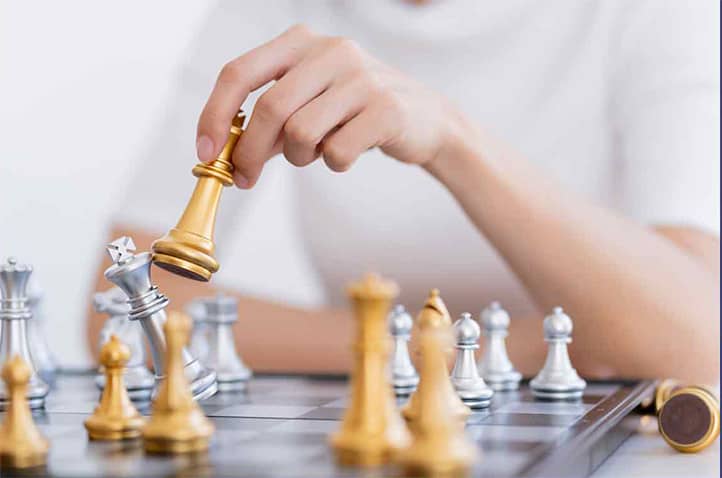
Conclusions
Strategic thinking is an integral part of personal success, especially in today’s dynamic world characterized by high competition and information overload. It enables individuals to see the bigger picture, evaluate the consequences of their decisions, and adapt to changes. As a result, strategic thinking helps people stay resilient in the face of challenges, make informed decisions, and achieve long-term goals.
In modern society, strategic thinking is the foundation of self-actualization. Its importance cannot be overstated, as it allows individuals to effectively adapt to complex conditions, find opportunities where others see obstacles, and create plans that lead to success. Therefore, anyone striving to achieve their goals and unlock their potential should focus on developing this skill.
Start small: incorporate self-reflection practices, develop the ability to forecast the consequences of your actions, and work on long-term planning. Use the tools provided, such as journals for analyzing situations, scenario-building exercises, or the SMART method for goal-setting. Don’t overlook psychological techniques that help mitigate cognitive biases and maintain emotional resilience in challenging circumstances.
It’s essential to understand that developing strategic thinking is a process that requires time and effort. However, the results are invaluable, as this skill opens up new perspectives, helps realize potential, and creates a stable future. In a world that is constantly changing, strategic thinking becomes not just desirable but a necessary tool for everyone.



